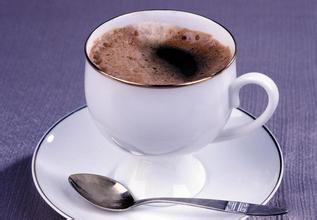A brief introduction to the treatment method of grinding degree and baking degree of Kenya Jinchu boutique coffee with rich and perfect taste

Of course, the difference brought about by temperature is only flat-just the difference in the area covered by flavor, and it is the utensils that really bring about the three-dimensional difference-- then really see the power of kono-- cotton, soft, thick, thick, all the sweet and bitter flavors of fruit flowers seem to be blended into a huge ball-- keep your mouth shut, and your mouth becomes a small universe with unlimited flavor.
This is Kenya! Thousands of tastes and amorous feelings! Although the flavor in memory has left traces, but in such a clear and quiet autumn morning, these tastes reappear one by one, just like walking in the place I have walked through many years later. Holding that pair of dreamlike but familiar and real hands in hand, how can we not be surprised and moved?
The Kenyan government takes the coffee industry very seriously, where it is illegal to cut down or destroy coffee trees. Kenyan coffee buyers are world-class high-quality coffee buyers, and no other country can grow, produce and sell coffee on a continuous basis like Kenya. All coffee beans are first acquired by the Kenya Coffee Commission (CoffeeBoardofKenya, CBK), where they are identified, graded, and then sold at weekly auctions, where they are no longer graded. The Kenya Coffee Commission only acts as an agent to collect coffee samples and distribute them to buyers so that they can determine the price and quality. The auction in Nairobi is for private exporters, and the Kenya Coffee Commission pays growers a price below the market price. The best coffee grade is bean berry coffee (PB), followed by AA++, AA+, AA, AB and so on. The fine coffee is shiny, delicious and slightly alcoholic. Auctions are also organized to meet the needs of dispatchers. This kind of auction usually has a small auction volume (3-6 tons each), with samples with the grower's logo for buyers to enjoy. After the auction, the exporters pack according to different flavors, different qualities and the quantity required by the blenders. This provides a great deal of flexibility for the dispatcher. Quality-conscious Germans and Nordic people are long-term buyers of Kenyan coffee.
Kenyan coffee is mostly grown at an altitude of 1500m, 2100m, and is harvested twice a year. To ensure that only ripe berries are picked, people must tour the forest about seven times. Kenyan coffee is grown by small farmers. After they harvest the coffee, they first send the fresh coffee beans to the cooperative cleaning station. The washing station sends the dried coffee to the cooperative in the form of "parchment coffee beans" (that is, coffee beans covered with endocarp) to the cooperative ("parchment coffee beans" is the last state of coffee beans before peeling). All the coffee is collected together, and the growers charge the average price according to their actual quality. This method of buying and selling generally works well and is fair to both growers and consumers. The Kenyan government takes the coffee industry extremely seriously, where it is illegal to cut down or destroy coffee trees. Kenyan coffee buyers are world-class high-quality coffee buyers, and no other country can grow, produce and sell coffee on a continuous basis like Kenya. All coffee beans are first acquired by the Kenya Coffee Commission (CoffeeBoardofKenya, CBK), where they are identified, graded, and then sold at weekly auctions, where they are no longer graded. The Kenya Coffee Commission only acts as an agent to collect coffee samples and distribute them to buyers so that they can determine the price and quality. The auction in Nairobi is for private exporters, and the Kenya Coffee Commission pays growers a price below the market price. The best coffee grade is bean berry coffee (PB), followed by AA++, AA+, AA, AB and so on. The fine coffee is shiny, delicious and slightly alcoholic. Auctions are also organized to meet the needs of dispatchers. This kind of auction usually has a small auction volume (3-6 tons each), with samples with the grower's logo for buyers to enjoy. After the auction, the exporters pack according to different flavors, different qualities and the quantity required by the blenders. This provides a great deal of flexibility for the dispatcher. Quality-conscious Germans and Nordic people are long-term buyers of Kenyan coffee.
Aromatic, full-bodied, with fruit flavor, taste rich and perfect. Kenyan coffee has a wonderful fruit flavor, tastes like BlackBerry and grapefruit, and is a favorite of many coffee gluttons. This coffee has an excellent medium purity, crisp and refreshing taste. It has a fresh flavor and is most suitable for drinking iced coffee in summer. When tasting this coffee, if it is paired with sour fruits such as grapefruit, it will certainly give me the best coffee experience. "not much like coffee, but a bit like fruit tea" is the common feeling of many people about this kind of shallow roasted Kenyan coffee. In addition to having obvious and charming fruit acidity, Kenyan coffee is mostly from small coffee farmers, planted in a variety of different environments, encounter different climate and rainfall every year, and bring a variety of distinct and unique personalities. Take the AAPlus grade "KenyaAA+Samburu" as an example, the Samburu in 2001 has a strong aroma of black plum, the acidity is not high, and the taste is strong. The newly harvested Samburu in the winter of 2002 presents a completely different flavor, mulberry and green plum, with a little Nanyang spice (Spicy) flavor, after drinking, the aftertaste has the sweetness of green tea, the acidity is slightly higher than the year before, the taste is still strong. The common Kenyan taste is not strong, but it has a bright fruit-like flavor, some spicy and some red wine.
87 °- is it the brown liquid that the juice is mixed into the cup? That sweet and sour tone, the sweet and sour strawberries and the aroma that can only be seen in fresh berries-so straightforward, and the bitterness runs without a trace-isn't it like Kenya? The softness of such fruit is comparable to that of MidAmerican beans!
93 °- the Mustang still needs a hard whip! In the end, how deep is the taste of beans that have been precipitated for a week, and I have to brew them at high temperature-- sure enough! The acidity of the mellow, sweet and bitter tropical sunshine that I am familiar with in my memory has come out-it is not as shallow and approachable as the juice version just now, but it makes people really feel the king demeanor of this bean!
90 °- there is no lack of eclecticism in this world, and in the world of coffee, don't forget to try eclecticism after challenging extremes-in fact, the real understanding of the word "equilibrium" often comes from this. Yes, a little less spirited than just now, but a little more confident than the first cup of fruit, as if to make it clear that the fruit is delicious, but a strong body with fruit is not enough, whole grains are also indispensable. Indeed, this is a typical "balanced pie" coffee that combines pleasant acidity and beautiful dried fruit aromas, and the combination of sour, bitter and sweet is so subtle that it is difficult to express whether to like or degrade-- in a nutshell-- "not bad!" Oh, well, "really good"!
Important Notice :
前街咖啡 FrontStreet Coffee has moved to new addredd:
FrontStreet Coffee Address: 315,Donghua East Road,GuangZhou
Tel:020 38364473
- Prev

Kenyan Jinchu Valley Fine Coffee Variety Planting Market Price Profile
This coffee has an excellent medium purity, crisp and refreshing taste. Fresh flavor and best for iced coffee in summer. When tasting this coffee, if it is accompanied by fruit with acidity such as grapefruit, it will definitely give me the best coffee experience. It's not coffee, it's fruit tea, and that's what many people feel about this light roast Kenyan coffee. In addition to having obvious and
- Next

A brief introduction to the treatment method of grinding degree and baking degree of Kenyan Jinchu Coffee
Kenya AA coffee beans are adjacent to Ethiopia, the origin of Arabica coffee trees in the north of Kenya, but it was not until the beginning of the 20th century that they began to engage in coffee cultivation. In the 19th century, missionaries introduced Arabica trees from the leaves, but did not plant them in large quantities. It was not until 1893 that coffee was cultivated on a large scale after the introduction of Brazil's ancient "bourbon" coffee seeds. That is to say,
Related
- Detailed explanation of Jadeite planting Land in Panamanian Jadeite Manor introduction to the grading system of Jadeite competitive bidding, Red bid, Green bid and Rose Summer
- Story of Coffee planting in Brenka region of Costa Rica Stonehenge Manor anaerobic heavy honey treatment of flavor mouth
- What's on the barrel of Blue Mountain Coffee beans?
- Can American coffee also pull flowers? How to use hot American style to pull out a good-looking pattern?
- Can you make a cold extract with coffee beans? What is the right proportion for cold-extracted coffee formula?
- Indonesian PWN Gold Mandrine Coffee Origin Features Flavor How to Chong? Mandolin coffee is American.
- A brief introduction to the flavor characteristics of Brazilian yellow bourbon coffee beans
- What is the effect of different water quality on the flavor of cold-extracted coffee? What kind of water is best for brewing coffee?
- Why do you think of Rose Summer whenever you mention Panamanian coffee?
- Introduction to the characteristics of authentic blue mountain coffee bean producing areas? What is the CIB Coffee Authority in Jamaica?

